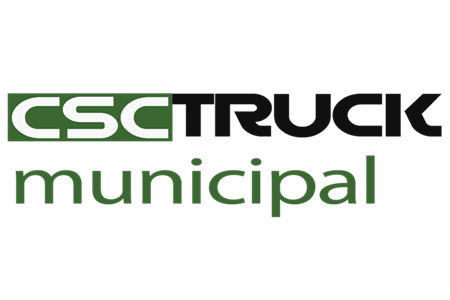Garbage trucks are essential for maintaining clean and functional urban environments, but like any heavy-duty vehicle, they are prone to engine issues that can disrupt operations. Understanding the common problems with garbage truck engines and knowing how to address them can save time, reduce costs, and ensure the longevity of these critical vehicles. In this blog post, we explore the most frequent engine-related issues, their causes, and practical solutions to keep your garbage truck running smoothly.
1. Overheating: A Persistent Challenge
One of the most common problems with garbage truck engines is overheating, which can lead to severe damage if not addressed promptly. Overheating often occurs due to coolant leaks, a malfunctioning thermostat, or a clogged radiator.
Causes of Overheating
- Coolant Leaks: Damaged hoses or a cracked radiator can cause coolant to leak, reducing the engine’s ability to regulate temperature.
- Faulty Thermostat: A stuck thermostat can prevent coolant from circulating properly, causing the engine to overheat.
- Clogged Radiator: Dirt and debris can accumulate in the radiator, obstructing airflow and reducing its cooling efficiency.
Solutions for Overheating
- Regularly inspect and replace damaged hoses or a cracked radiator to prevent coolant leaks.
- Test and replace a malfunctioning thermostat to ensure proper coolant circulation.
- Clean the radiator regularly to remove dirt and debris, ensuring optimal airflow and cooling performance.
Addressing overheating issues promptly can prevent costly engine damage and keep your garbage truck operational.
2. Poor Fuel Efficiency: A Costly Problem
Poor fuel efficiency is another common issue that can significantly increase operational costs for garbage truck fleets. This problem is often caused by dirty fuel injectors, a clogged air filter, or improper tire pressure.
Causes of Poor Fuel Efficiency
- Dirty Fuel Injectors: Over time, fuel injectors can become clogged with dirt and debris, reducing their efficiency and increasing fuel consumption.
- Clogged Air Filter: A dirty air filter restricts airflow to the engine, forcing it to work harder and consume more fuel.
- Improper Tire Pressure: Underinflated tires increase rolling resistance, leading to higher fuel consumption.
Solutions for Poor Fuel Efficiency
- Clean or replace fuel injectors regularly to ensure optimal fuel delivery and combustion.
- Replace the air filter at recommended intervals to maintain proper airflow to the engine.
- Check and maintain proper tire pressure to reduce rolling resistance and improve fuel efficiency.
Improving fuel efficiency not only reduces operational costs but also minimizes the environmental impact of garbage truck operations.
3. Starting Issues: A Frustrating Problem
Starting issues are a frequent complaint among garbage truck operators, often caused by a weak battery, faulty starter motor, or fuel system problems. These issues can lead to delays and disrupt waste collection schedules.
Causes of Starting Issues
- Weak Battery: A depleted or aging battery may not provide enough power to start the engine.
- Faulty Starter Motor: A malfunctioning starter motor can prevent the engine from cranking.
- Fuel System Problems: Air in the fuel lines or a clogged fuel filter can restrict fuel flow, making it difficult to start the engine.
Solutions for Starting Issues
- Test and replace a weak or aging battery to ensure reliable engine starts.
- Inspect and repair or replace a faulty starter motor to restore proper engine cranking.
- Bleed air from the fuel lines and replace a clogged fuel filter to ensure consistent fuel delivery.
Resolving starting issues ensures that your garbage truck is ready to operate when needed, minimizing downtime and delays.
4. Excessive Smoke: A Sign of Underlying Issues
Excessive smoke from the exhaust is a clear indicator of engine problems, often caused by burning oil, a rich fuel mixture, or a malfunctioning turbocharger. Ignoring this issue can lead to more severe engine damage over time.
Causes of Excessive Smoke
- Burning Oil: Worn piston rings or valve seals can allow oil to enter the combustion chamber, causing blue or gray smoke.
- Rich Fuel Mixture: A faulty fuel injector or oxygen sensor can cause the engine to burn too much fuel, resulting in black smoke.
- Turbocharger Issues: A damaged turbocharger can leak oil into the exhaust system, producing excessive smoke.
Solutions for Excessive Smoke
- Replace worn piston rings or valve seals to prevent oil from entering the combustion chamber.
- Repair or replace faulty fuel injectors or oxygen sensors to maintain the correct fuel-air mixture.
- Inspect and repair or replace a damaged turbocharger to eliminate oil leaks and reduce smoke emissions.
Addressing excessive smoke not only improves engine performance but also ensures compliance with environmental regulations.
5. Loss of Power: A Performance Killer
A noticeable loss of power in a garbage truck engine can significantly impact its ability to perform heavy-duty tasks. This issue is often caused by a clogged fuel filter, a malfunctioning turbocharger, or worn-out engine components.
Causes of Loss of Power
- Clogged Fuel Filter: A dirty fuel filter can restrict fuel flow, reducing engine power.
- Malfunctioning Turbocharger: A faulty turbocharger can fail to provide adequate boost pressure, resulting in reduced engine performance.
- Worn-Out Engine Components: Over time, components like pistons, rings, and valves can wear out, leading to a loss of compression and power.
Solutions for Loss of Power
- Replace a clogged fuel filter to restore proper fuel flow and engine performance.
- Inspect and repair or replace a malfunctioning turbocharger to ensure adequate boost pressure.
- Rebuild or replace worn-out engine components to restore compression and power.
Restoring engine power ensures that your garbage truck can handle demanding tasks efficiently, maintaining productivity and operational efficiency.
By understanding and addressing these common problems with garbage truck engines, you can ensure the reliability, efficiency, and longevity of your fleet. Regular maintenance and timely repairs are key to keeping these essential vehicles in top condition, supporting the critical role they play in urban waste management.







